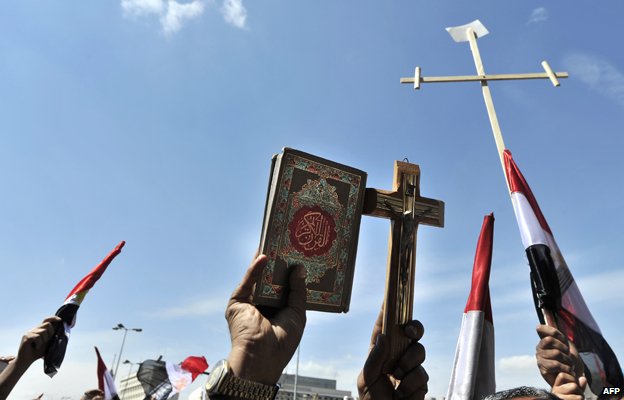In a meeting held Tuesday at the headquarters of the Ministry of Religious Endowments in Downtown Cairo, Minister Mohamed Mokhtar Goma’a stated that he plans to form special groups dedicated to spreading awareness of the “threats” of atheism and the Baha’i and Shi’a religions, in addition to social issues such as drug addiction and murder. The discussion included delegates from different governorates and ministers from various departments whom Minister Goma’a called upon to collect statistics on aspects such as the current number of mosques in their areas. Once data is received, ministry spokesman Mohamed Abdel Razek stated that groups will be formed and begin to hold monthly gatherings until Ramadan begins. “The groups will include one Qur’an reciter, one chanter and two speakers,” Abdel Razek told Daily News Egypt. The meeting also discussed ways to regulate mosque employees, and outlined a system for every mosque to have a minimum of one worker. The meeting also considered the upcoming Religious Speech Freedom Forum to be held this May, and reviewed their proposal regarding what topics should be examined. The conference will be deliberating laws regarding religious speech in Egypt after the…
Egypt To Confront ‘Threats of Atheists, Baha’is and Shiites’ With New ‘Special Groups’
April 17, 2015




